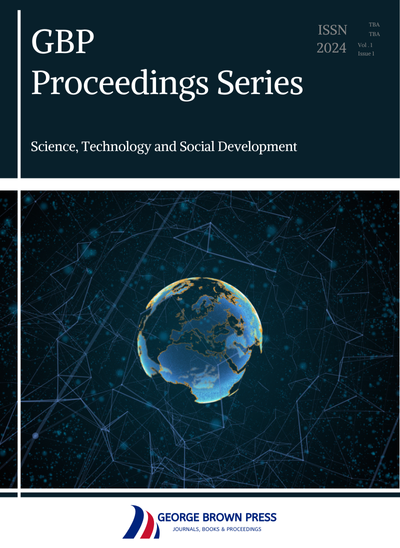An Empirical Study on the Impact of Ultimate Frisbee on College Students' Mental Health: Taking University Physical Education Classes as the Context
DOI:
https://doi.org/10.71222/pb69xv10Keywords:
ultimate frisbee, mental health, college students, physical education, psychological well-being, empirical studyAbstract
In recent years, as attention to students' mental well-being has increased, integrating physical education with psychological development has become a key focus in higher education reform. This study investigates the psychological impact of ultimate frisbee on college students within the context of university physical education classes. Drawing upon empirical data from questionnaires and interviews conducted among 230 undergraduate students in three universities, the research explores how participation in ultimate frisbee influences emotional regulation, stress relief, interpersonal communication, and self-efficacy. The results indicate that regular engagement in ultimate frisbee significantly enhances students' positive emotional experiences, reduces symptoms of anxiety and academic pressure, and fosters a stronger sense of teamwork and social belonging. The findings provide practical implications for incorporating psychologically beneficial sports into the university curriculum, contributing to the holistic development of students.
References
1. J. Portillo, A. Bravo-Sánchez, P. Abián, A. Dorado-Suárez, et al., "Influence of secondary school students’ physical fitness on sports performance during an ultimate frisbee competition," Int. J. Environ. Res. Public Health, vol. 19, no. 7, p. 3997, 2022, doi: 10.3390/ijerph19073997.
2. O. Rymar, N. Sorokolit, O. Romanchuk, A. Buriak, et al., "PHYSICAL EDUCATION OF SECONDARY SCHOOL STUDENTS USING ULTIMATE FRISBEE," in Proc. Int. Sci. Conf. Society. Integration. Educ., vol. 1, 2024, doi: 10.17770/sie2024vol1.7871.
3. J. P. Amoroso, R. Rebelo-Gonçalves, R. Antunes, J. Coakley, et al., "Teamwork: a systematic review of implications from psychosocial constructs for research and practice in the performance of ultimate frisbee games," Front. Psychol., vol. 12, p. 712904, 2021, doi: 10.3389/fpsyg.2021.712904.
4. J. Amoroso, R. Antunes, R. Rebelo-Gonçalves, J. P. Amoroso, et al., "Dispositional orientations in competitive ultimate frisbee athletes," Cuad. Psicol. Deporte, vol. 22, no. 2, pp. 282–293, 2022, doi: 10.6018/cpd.468761.
5. J. P. Amoroso, J. Coakley, R. Rebelo-Gonçalves, R. Antunes, et al., "Teamwork, spirit of the game and communication: a review of implications from sociological constructs for research and practice in ultimate frisbee games," Soc. Sci., vol. 10, no. 8, p. 300, 2021, doi: 10.3390/socsci10080300.
6. S. Chen, L. Du, Y. Gao, H. Li, Y. Zheng, L. Xie, et al., "The applied study to improve the treatment of knee sports injuries in ultimate frisbee players based on personalized exercise prescription: a randomized controlled trial," Front. Public Health, vol. 12, p. 1441790, 2024, doi: 10.3389/fpubh.2024.1441790.
7. J. Portillo, P. Abián, A. Bravo-Sánchez, A. Dorado-Suárez, et al., "Effects of the comprehensive and technical models of sports teaching in secondary school students," Sustainability, vol. 15, no. 8, p. 6752, 2023, doi: 10.3390/su15086752.
8. H. Lam, O. Kolbinger, M. Lames, et al., "State transition modeling in ultimate frisbee: adaptation of a promising method for performance analysis in invasion sports," Front. Psychol., vol. 12, p. 664511, 2021, doi: 10.3389/fpsyg.2021.664511.
9. J. Camarasa, S. Boned-Gómez, O. García-Taibo, et al., "Game on for gender equality: an evaluation of ultimate team in pri-mary physical education," 2023, doi: 10.7752/jpes.2023.09278.
10. G. Griggs and M. Fleet, "Most people hate physical education and most drop out of physical activity: in search of credible curriculum alternatives," Educ. Sci., vol. 11, no. 11, p. 701, 2021, doi: 10.3390/educsci11110701.
11. M. Kajiki, Y. Yamashita, R. Inada, T. Matsumoto, et al., "Physical, physiological, and technical demands in ultimate frisbee small-sided games: influence of pitch size," Sports, vol. 9, no. 8, p. 104, 2021, doi: 10.3390/sports9080104.
12. Y. Muramoto, T. Kimura, A. Kinoda, Y. Yamada, et al., "Web-based survey on injuries among ultimate frisbee athletes in Japanese college sports: sex differences in injury location and onset," BMC Sports Sci., Med. Rehabil., vol. 16, no. 1, p. 175, 2024, doi: 10.1186/s13102-024-00964-9.











